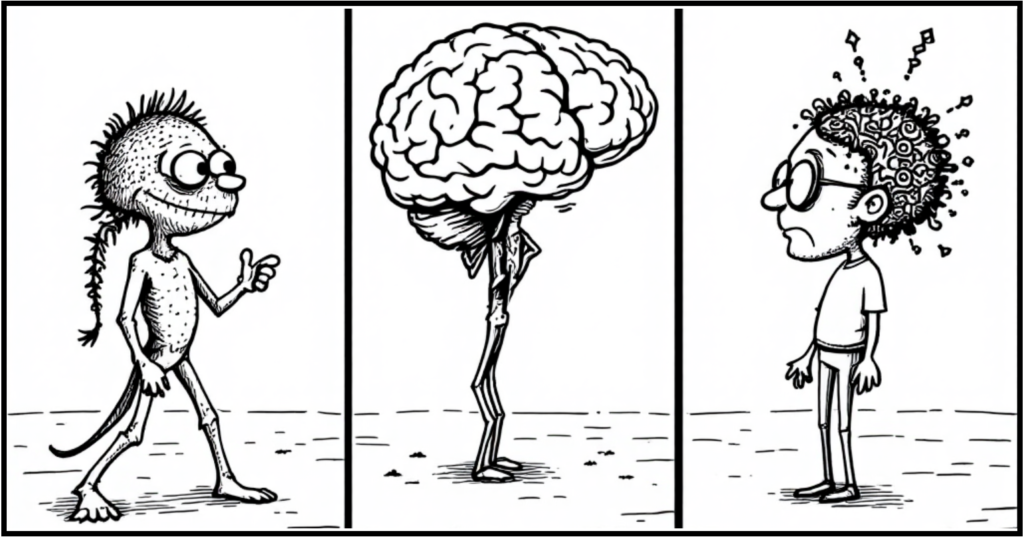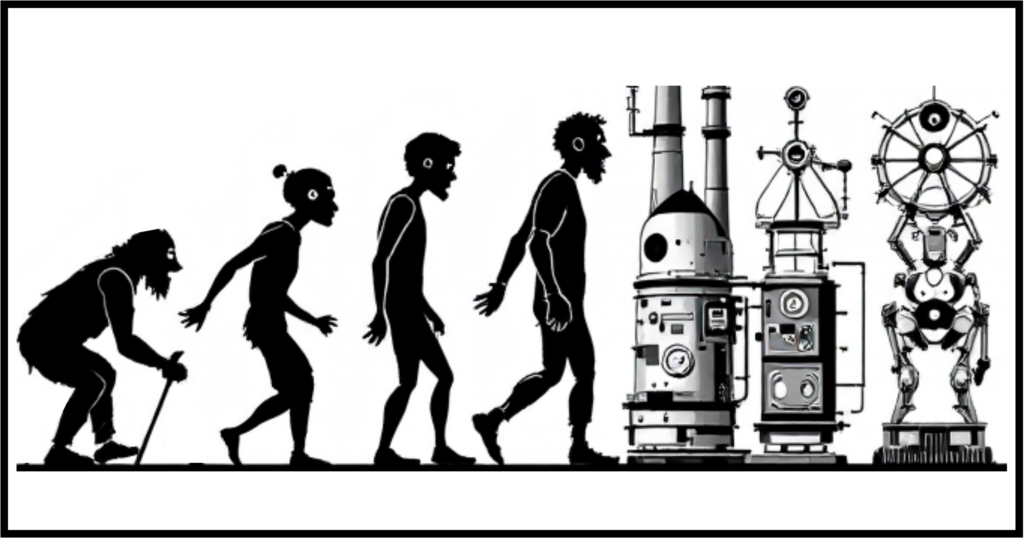Since the publication of the “Data sobriety and sovereignty” article in the Tech-Exec magazine, I get many questions about the concept of “techno-messianism“. This article is an attempts to define this concept, how it relates to the notion of “progress” and the role its plays in the current of business of digital transformation.
Prerequisite understanding
Techno-messianism refers to “Messianism“: “the belief in the advent of a messiah who acts as the savior of a group of people”.
In the case of “techno-messianism”, the messiah is represented by technology, particularly in today’s world by information and digital technologies, including artificial intelligence.
The “group of people” in this scenario consists of technology users, primarily those residing in economically and socially advanced countries, who have already met their basic needs as outlined in Maslow’s hierarchy.
Today, “techno-messianism” has reached significant extremes levels (e.g. the promise to reach Artificial General Intelligence).
How did we arrive at this point? Let’s begin with the home of natural intelligence: the brain.
The human brain
Over 300,000 years, the human brain has evolved from a primitive/reptilian state, focused on first survival instincts, to then a social state that encompasses emotions and memories, and ultimately to metaphorical capabilities like rational thought and consciousness.
This evolution is driven by the principle of minimizing pain and maximizing pleasure, rooted in our neurobiology and influenced by stress and pleasure hormones. This mechanism aids survival by enabling the brain to learn from negative experiences and seek essential comforts, such as food and safety, aligning with Maslow’s hierarchy of needs.
Additionally, the principle of energy conservation has shaped brain development, resulting in cognitive biases and shortcuts that optimize our reasoning. While these biases enhance decision-making swiftness, they can also limit our understanding of complex situations, leading to simplified choices that may overlook critical factors.

Hope
As human brains progressed in their development, along with consciousness, reasoning, and anticipation, a new type of pain emerged: sorrows and worries about potential future hardships or death. This awareness of mortality became a significant motivator for individuals to tackle life’s challenges.
Despite the brain’s advanced capabilities, many profound questions remain unanswered—such as the nature of disease, the afterlife, and the mind-body connection—creating significant stress in the face of an unpredictable future. In difficult times, the hope for a suffering-free existence has given rise to comforting narratives, including religions, which often promise salvation from dire circumstances through supernatural or superhuman entities.
Throughout history and across various religions, a recurring theme is the announcement of a single, powerful, providential figure (often male) destined to save us from threats or pain. These Messiahs embody hope, representing a potent and transformative emotion that resonates deeply within human societies.
Progress
Progress is defined as “a set of advancements in technology, science, and social organization efficiency.” It began with the invention of manual tools (Neolithic) that enabled humans to perform tasks beyond their physical capabilities, alleviating painful labor and enhancing productivity. These early innovations provided a competitive advantage, allowing tool users to surpass those relying solely on their natural strength.
Over the past 200 years, progress has become increasingly associated with technological advancement, fueled by fossil hydrocarbons consumption. Initially, progress included diverse improvements in social structures and community organization, but these aspects have diminished in our understanding. Today, the emphasis is largely on machinery and production innovations, often neglecting essential elements of social progress like equality and justice.
In modern Western societies, progress is nearly synonymous with the growth of information technologies and artificial intelligence. These developments dominate discussions, shaping our expectations of progress. While technology enhances efficiency and connectivity, this narrow focus risks sidelining crucial areas such as environmental sustainability, mental health, and social well-being.
Computing
The rise of personal computing in the 1990s revolutionized human interaction with technology, enabling machines to perform increasingly complex tasks and significantly enhancing productivity and creativity. With advancements in infrastructure and hardware, computing power surged currently to hexaflops—trillions of operations per second—allowing for unprecedented computational capabilities.
The expansion of hardware capabilities fueled explosive growth in the software industry, resulting in a vast array of applications designed to enhance human experiences. In the last decade, the number of available apps has exploded, providing solutions for nearly every need—from productivity tools to health tracking. While this proliferation empowers individuals and organizations, it also leads to dependency on technology.
Nowadays, more than ever, a new hope resides in artificial intelligence: all the unfinished IT developments that hold promises capable of creating the buzz and fueling dreams. While the concept of AI mobilizes many investors and technology aficionados, uncontrolled reliance on AI raises ethical concerns: it is vital to ensure AI enhances rather than diminishes our individual, societal and environmental well-being.
Why this perpetual flight forward?
Techno-messianism’s promise of salvation through endless technological advancement represents perhaps humanity’s most ambitious—and potentially dangerous—leap of faith.
As we race forward on this infinite highway of innovation, we must ask ourselves: Are we running towards genuine solutions or merely away from our fundamental human condition? The paradox lies in how each technological breakthrough, while solving immediate problems, seems to distance us further from our essential nature, Nature in general and create new dependencies.
Rather than blindly embracing a “technological escape forward” as our savior, perhaps we should pause to consider whether true human flourishing might require not just smarter machines, but how and when to use them to upgrade humans instead of downgrading us.
For more information, please see:
- the book “Tech Agnostic” by Greg Epstein
- Tech is “downgrading humans” by Tristan Harris
- my SWARN presentation canvas

